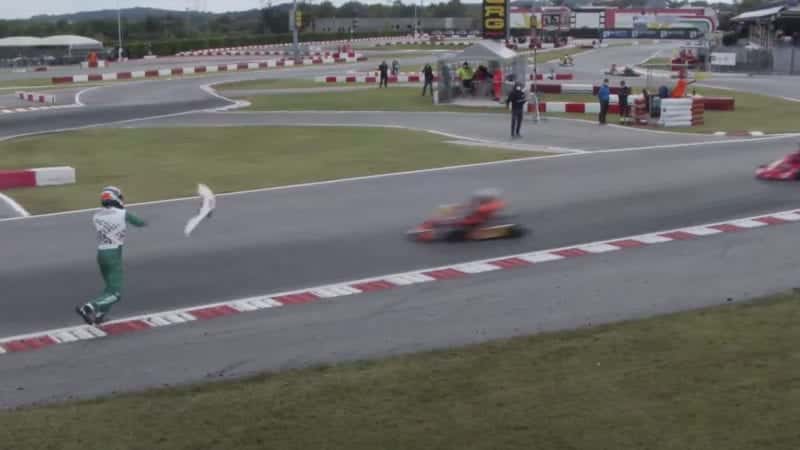Luca Corberi 15-year ban is upheld after failed appeal over kart championship violence
Luca Coberi's 15-year ban has been confirmed by the ICA

Corberi has been handed a ban for his conduct
Luca Corberi’s 15-year ban for violent conduct at a Karting World Championship event has been upheld after his appeal to overturn the sanction was rejected by the International Court of Appeal (ICA), run by motor racing’s governing body, the FIA.
Corberi collided with a rival racer, Paolo Ippolito, and crashed out of the FIA KZ event, in Italy last year. He then hurled the front bumper from his kart at Ippolito, who was still in the race.
The Italian, who was 23 at the time, then attacked Ippolito after the chequered flag. Parents of both karters joined in the fight, which was widely shared on social media.
Corberi, whose family runs the Lonato circuit where the incident took place, said that his behaviour had been “disgraceful”. he added: “I’ve decided to not take part in any other motor sport competition for the rest of my life… I will totally agree with the punishments required.”
But after being handed a 15 year ban by an an FIA international tribunal in April this year, Corberi said he did not accept the punishment and appealed, arguing that there had been mitigating circumstances, including the collision, which he blamed on Ippolito.
He said that his ban was in violation of the Convention for the Protection of Human Rights because he faces two sets of disciplinary procedures — from the FIA and Italy’s motor racing governing body — and that it should be reduced to five years.
“The FIA keeps saying about the feelings and the times but there are other times bad acts have come into the sport,” he said at the appeal hearing in June, blaming the heightened emotions during and immediately after the race for his actions.
“I would also like to know why the first accident is not taken into the consideration. This meeting is made by people, not by computers. Feelings are different when you are competing from when you aren’t taking part.
“People at the circuit can confirm that I said actions had to be taken. I always said that and that’s something I will always say. I have to get some kind of penalty but there’s a limit.
“Otherwise, a life ban should be handed out for any kind of accident at a karting event.”
Corberi’s defence had also argued that the FIA was not sufficiently competent enough to hand out such a sanction, a point directly refuted by the ICA.
The appeals court also found that the ‘compensation’ of 50,000 Euros paid by Corberi as a fine was irrelevant to the lessening of the ban and the original tribunal had already considered mitigating and provocative circumstances.
“After having reviewed the videos, the Court fully shares the conclusions of the IT and therefore finds that there is absolutely no reason to see Incident no1 (contact with Ippolito) as a provocation which would be seen as a mitigating circumstance,” the decision read.
“Incidents no2 (Corberi’s throwing of debris at Ippolito) and no3 (Attacking him post-race in the pits) took place at a moment when the Appellant had had enough time to calm down and take the only legitimate and obvious measure which was to raise a protest against Mr Ippolito, who in the end was actually disqualified following Incident no1.
“In the present case, the Court decides that there is no reason to reduce the sanction, which is absolutely proportionate to the gravity of the breaches committed by the Appellant.
“Contrary to the statements made by the Appellant in the written proceedings and before the Court, the IT did take into consideration various mitigating circumstances. This led the IT to exclude a life-time ban and a life-time suspension, which had been suggested by the FIA and originally contemplated by the IT.
“Based on the above, the Court decides that far from being disproportionate, the sanction imposed by the IT is therefore quite favourable to the Appellant, who should now draw the consequences of his actions, whether at the sporting level or otherwise.”
